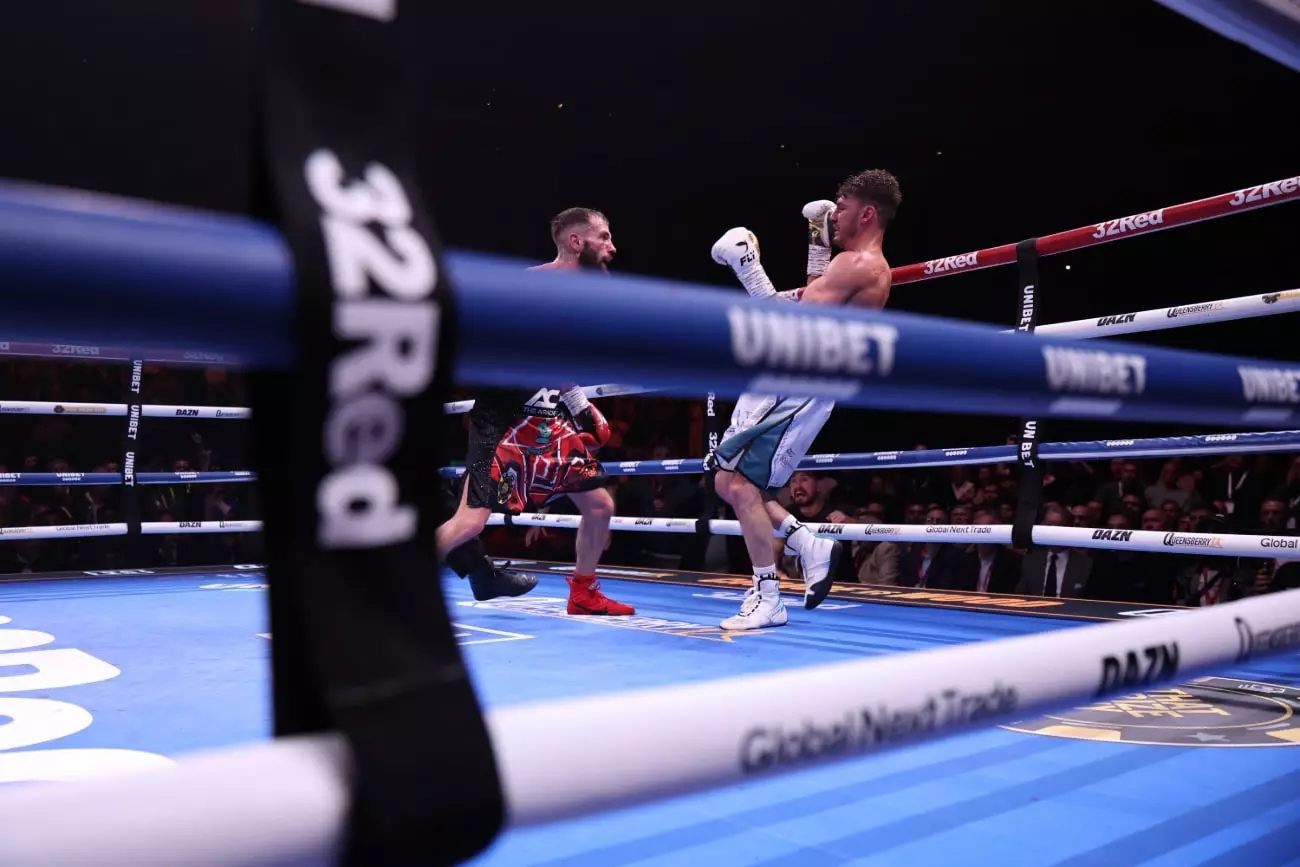In a monumental showdown at the Motorpoint Arena in Nottingham, IBO super featherweight champion Anthony Cacace showcased his exceptional skill set by defeating former two-time WBA featherweight titleholder Leigh Wood with a decisive ninth-round TKO. With a record of 24 wins and just one loss, Cacace reinforced his status within the boxing hierarchy, demonstrating that technical prowess is often a cutting edge in a sport filled with unpredictability. His victory over Wood not only highlighted his own capabilities but also raised questions about Wood’s preparedness and approach leading into this high-stakes matchup.
Technical Dominance in the Ring
From the outset, Cacace’s strategy was clear. He utilized an impressive range of punches—from jabs to powerful uppercuts—that consistently challenged Wood’s defenses. Cacace’s ability to switch stances seamlessly allowed him to keep Wood off balance, and it was evident that Wood struggled to find a rhythm as he was outmaneuvered almost at every turn. As the fight progressed, Cacace’s jab became the spearhead of his attacks, consistently setting up combinations that rattled Wood.
By the ninth round, the relentless pressure applied by Cacace culminated in an explosive series of punches that left Wood staggering against the ropes. This sequence of offense emphasized not only Cacace’s physical conditioning but also his mental strategy; he was in command, pushing Wood beyond his limits. The standing eight count issued by referee John Lathan was merely a formality in an already lopsided contest.
The Role of Coaching
Trainer Ben Davison’s comments after the eighth round reflected a stark contrast between perception and reality. His belief that Wood was still capable of bouncing back seemed hopeful, yet misguided. Observers noticed that Wood appeared fatigued and overwhelmed as he returned to his corner after the eighth. When Davison ultimately threw in the towel, it was a reaction born out of urgency and a need to safeguard his fighter’s health, as Wood was clearly unable to mount any substantial defense against Cacace’s onslaught.
This situation raises interesting dynamics around coaching and fight preparation. Was Davison truly misreading the direction of the fight, or was he attempting to instill a sense of confidence detrimental to Wood’s safety? The fine line between encouragement and misleading optimism can define a fighter’s fate and should serve as a cautionary lesson for trainers worldwide.
Reflections on Leigh Wood’s Strategy
Leigh Wood’s return to the ring after a prolonged 19-month hiatus can also be scrutinized in light of this loss. While taking on a fighter like Cacace may have been a lucrative opportunity, it perhaps was an unwise choice, given the circumstances. Cacace’s technical proficiency made him a formidable opponent, and Wood’s lack of sharpness indicated that he was not fully prepared for the rigors of such an intense battle.
Therein lies the critical takeaway: Wood should have considered warming up with a couple of less challenging bouts before stepping into the spotlight against an elite fighter. It’s essential for athletes to understand their own limitations and the health risks associated with jumping back into the fray, especially against seasoned adversaries who are fighting fit and ready.
The Financial Driver
Notably, the motivations behind Wood’s decision to fight Cacace can hardly be ignored. The allure of a significant financial payout can cloud a fighter’s judgement, leading them to take risks that might not be wise in the long run. In the cutthroat world of professional boxing, monetary gain often trumps strategic prudence, yet a fighter’s wellbeing should never be sidelined for profit.
Wood’s decision, in hindsight, could cost him more than just this fight. The road to recovery after a TKO defeat is often long and demanding, and without careful recalibration, Wood’s future opportunities might be hampered.
Cacace’s victory in Nottingham serves as a resounding testament to the importance of preparation, strategy, and the understanding that in boxing, skill reigns supreme over pure will.

